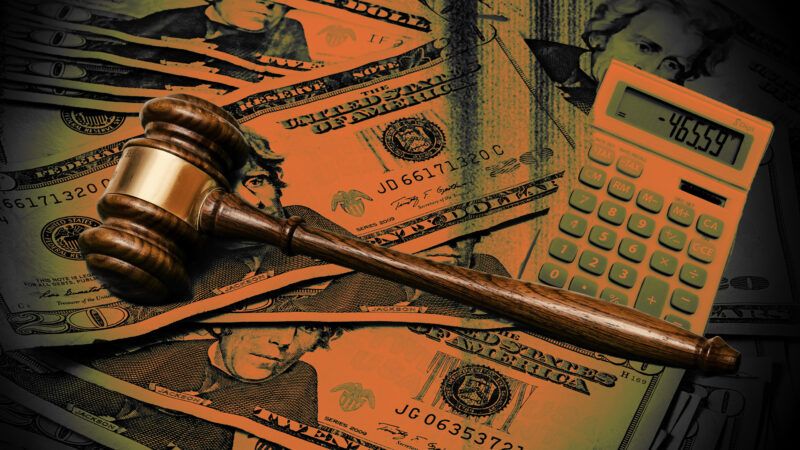Boston Judge Dismisses Over 120 Cases Because There Aren't Enough Public Defense Attorneys
After a pay dispute led to a work stoppage in late May, courts in Suffolk County, Massachusetts, dismissed cases of indigent defendants who had no legal representation for 45 days.

Boston Municipal Court Chief Justice Tracy-Lee Lyons dismissed over 120 cases on Tuesday after a work stoppage among public defense attorneys in Suffolk County, Massachusetts. Defendants were released from charges ranging from traffic violations to assault.
In Massachusetts, a judge is required under the Lavallee protocol to release a defendant from custody if they haven't had an attorney for seven days, and must drop a case if the defendant hasn't had an attorney for 45 days, according to CBS News.
"This case will be dismissed without prejudice," Lyons said for each case, and noted that all fines and fees would be waived. Lyons took the unprecedented action after hearing from Suffolk County public defenders that they were unable to find the defendants an attorney.
Suffolk County provides a combination of public defenders and court-appointed attorneys, called bar advocates, for indigent defendants. Bar advocates usually take on about 80 percent of the county's cases, but a dispute over hourly pay led to a work stoppage and a shortage of available defense attorneys at the end of May. The work stoppage has caused more than 1,300 people to lack representation in court as of late June. In early July, the court was forced to release defendants from custody. Tuesday marked the first time the Lavallee protocol has been invoked to drop cases outright.
Prosecutors' objections to the dismissals—even in cases involving alleged assaults and domestic violence—were ultimately unsuccessful. The Suffolk County district attorney's office said in a statement following the unprecedented hearing that "many more [case dismissals are] expected in coming days and weeks, [and] present a clear and continuing threat to public safety."
Meanwhile, Democratic Gov. Maura Healey stated that both the public safety and due process issues need to be resolved, and urged defense attorneys to get back to court while the Massachusetts legislature works on a resolution.
Bar advocates in the state are among the lowest paid in New England, receiving $65 per hour in Massachusetts compared to nearly double or more in nearby states, including Rhode Island ($112 per hour), New Hampshire ($125 per hour), and Maine ($150 per hour). Private practice work can yield $300 per hour. But, despite the stoppage, the 2026 fiscal year budget signed on July 4 by Healy didn't include an increase in hourly pay.
"The dismissal of cases today under the Lavallee protocols is what needs to be done for those individuals charged with crimes but with no lawyer to vindicate their constitution rights," Shira Diner, a Boston University School of Law lecturer and past president of the Massachusetts Association of Criminal Defense Lawyers, told the Associated Press. "It is, however, not a solution to the deep crisis of inadequate pay for bar advocates. Until there are enough qualified lawyers in courts to fulfill the constitutional obligation of the right to counsel, this crisis will only intensify."
Funding public defenders is an ongoing nationwide issue, at both the state and federal levels. Without adequate pay to attract and retain legal talent, states and counties struggle to provide constitutionally mandated counsel to criminal defendants. Understaffed attorneys who provide indigent defense work may lack time to provide effective counsel due to excessive caseloads. And while defendants wait to meet with an attorney, many—about 70 percent of the jail population—will stay in jail pretrial.
The Fifth and Sixth Amendments guarantee that criminal defendants have the right to an attorney. These rights are a pivotal part of due process and provide a strong check on government prosecutorial power. While public safety is a high priority for the criminal justice system, it must equally prioritize the due process rights of Americans.


Show Comments (98)